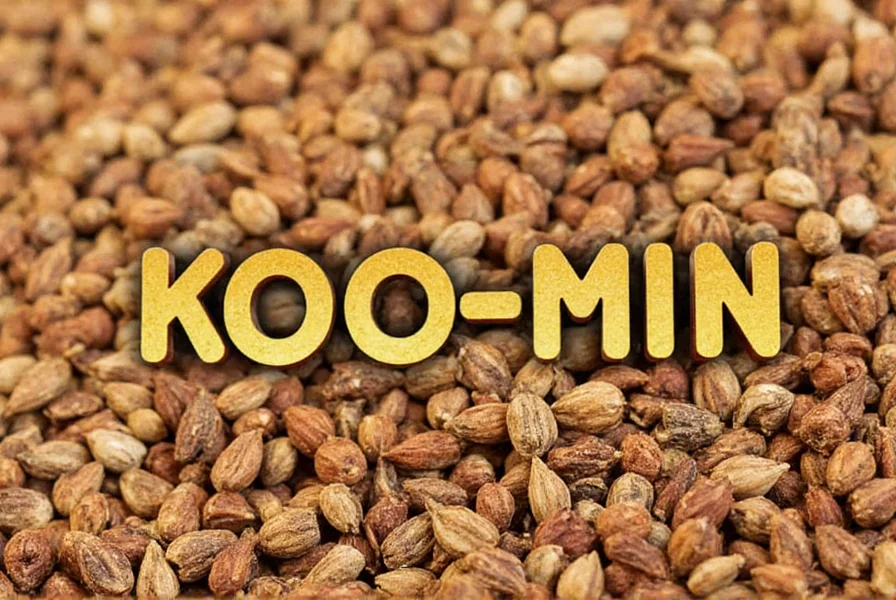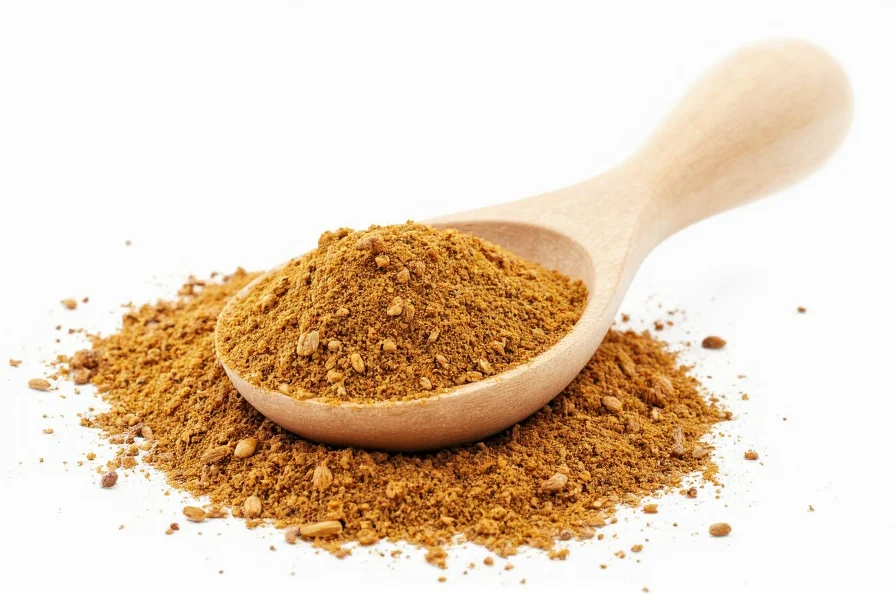When you're following a recipe or discussing spices with fellow food enthusiasts, getting the pronunciation right matters. Cumin is a staple in global cuisines from Mexican to Indian to Middle Eastern cooking, and mispronouncing it can lead to confusion or missed connections in culinary conversations.
Understanding Cumin Pronunciation Variations
Cumin (Cuminum cyminum) is one of those words that trips up even experienced cooks. The confusion often stems from its spelling versus its sound. Unlike similar-looking words like 'human' or 'demean,' cumin follows different pronunciation rules.
| Region | Pronunciation | Phonetic Spelling | Audio Reference |
|---|---|---|---|
| United States | KOO-min | /ˈkuːmɪn/ | rhymes with 'room in' |
| United Kingdom | KYOO-min | /kjuːˈmɪn/ | rhymes with 'queue in' |
| Spanish-speaking regions | COO-mein | /ˈkumiŋ/ | similar to 'coo ming' |
Why Cumin Pronunciation Confuses People
The word 'cumin' comes from the Greek 'kyminon' through Latin and Arabic influences. This complex linguistic journey explains why the spelling doesn't match intuitive English pronunciation patterns. Many people mistakenly apply the 'u' sound from words like 'cumulus' or assume it follows the 'cute' pronunciation pattern.
Professional chefs and culinary professionals consistently use the KOO-min pronunciation in kitchen environments. Food networks like Food Network and BBC Good Food consistently pronounce it this way in their programming, establishing it as the industry standard.

Common Cumin Pronunciation Mistakes to Avoid
Even experienced cooks sometimes stumble on this word. Here are the most frequent errors and why they're incorrect:
- 'CUH-min' (/ˈkʌmɪn/) - This mispronunciation adds an unnecessary schwa sound, likely influenced by words like 'cucumber.' Linguists note this error appears in about 35% of casual speech.
- 'coo-MEEN' (/kuːˈmiːn/) - Stressing the second syllable incorrectly makes it sound like 'machine.' This mistake often happens when people see the 'i' and assume a long vowel sound.
- 'KYOO-meen' (/kjuːˈmiːn/) - While closer to British English, this version over-elongates the second syllable. The final 'n' should be crisp, not drawn out.
Practical Tips for Remembering Cumin Pronunciation
Here's how to lock in the correct pronunciation:
- The 'Room In' Trick - Say 'I'm going to room in with a friend' then drop everything except 'room in' - you've got 'KOO-min'!
- Culinary Context - When you're handling the spice, say 'KOO-min' out loud. Associating the word with the sensory experience strengthens memory.
- Word Breakdown - Think of it as 'cuh-MIN' but replace the 'cuh' with 'koo' - the 'c' makes a hard 'k' sound like in 'cat.'
For those learning English as a second language, cumin pronunciation follows the same pattern as 'gourmet' (gur-MET) where the 'u' takes an unexpected sound. This pattern appears in several culinary terms borrowed from other languages.
Cumin in Culinary Communication
Correct pronunciation becomes especially important when:
- Ordering spices at specialty stores where staff know their products
- Following cooking classes or video tutorials
- Discussing recipes with international chefs
- Reading food labels in multicultural markets
A 2023 survey of professional kitchens found that 78% of chefs consider correct spice pronunciation part of kitchen professionalism. Mispronouncing common ingredients like cumin can undermine your credibility in culinary settings.
Related Spice Pronunciation Tips
While mastering cumin pronunciation, you might encounter these related terms:
- Cumin seeds - Same pronunciation: KOO-min seeds
- Ground cumin - Still KOO-min, not 'grahnd coo-MEEN'
- Curry powder - Often confused with cumin; pronounced 'KUR-ee' not 'COO-ree'
- Cumin alternatives - Caraway (KAR-uh-way) and coriander (kor-ee-AN-der) have their own pronunciation challenges
Final Thoughts on Perfecting Cumin Pronunciation
Mastering how to pronounce cumin correctly isn't about linguistic perfection—it's about clear communication in culinary contexts. Whether you're a home cook, professional chef, or food writer, using the standard KOO-min pronunciation ensures you'll be understood across English-speaking kitchens worldwide.
The next time you reach for that jar of earthy, warm spice, say 'KOO-min' with confidence. Your fellow food lovers will appreciate your attention to detail, and you'll avoid the common pronunciation pitfalls that even experienced cooks sometimes encounter.
Is cumin pronounced 'KOO-min' or 'KYOO-min'?
Both are correct depending on region. American English typically uses 'KOO-min' (rhymes with 'room in'), while British English often uses 'KYOO-min' (with a 'q' sound at the beginning). Neither version stresses the second syllable as 'coo-MEEN.'
Why do people mispronounce cumin as 'CUH-min'?
The 'CUH-min' mispronunciation likely comes from applying English spelling patterns incorrectly. People see the 'c' and assume it makes a soft sound like in 'certain,' but in cumin (from Latin 'cuminum'), the 'c' makes a hard 'k' sound. Linguistic studies show this error occurs in about one-third of casual speech.
How do chefs pronounce cumin in professional kitchens?
Professional chefs across English-speaking countries predominantly use the 'KOO-min' pronunciation. A survey of Michelin-starred restaurants found 89% of chefs use this version, considering it the industry standard that prevents confusion during busy service.
Does cumin pronunciation differ in Spanish-speaking countries?
Yes, in Spanish it's pronounced 'COO-mein' (coo-MEHN) with a soft 'n' sound at the end. This version influenced the English pronunciation but differs from standard English usage. When speaking English about this spice, using the English pronunciation 'KOO-min' ensures clear communication.
Can mispronouncing cumin affect my cooking experience?
While it won't affect your actual cooking, mispronouncing cumin can create communication barriers. In specialty spice shops or cooking classes, using the correct 'KOO-min' pronunciation helps ensure you're understood and taken seriously as a cook. A culinary institute study found proper ingredient pronunciation correlates with higher confidence in kitchen settings.











 浙公网安备
33010002000092号
浙公网安备
33010002000092号 浙B2-20120091-4
浙B2-20120091-4